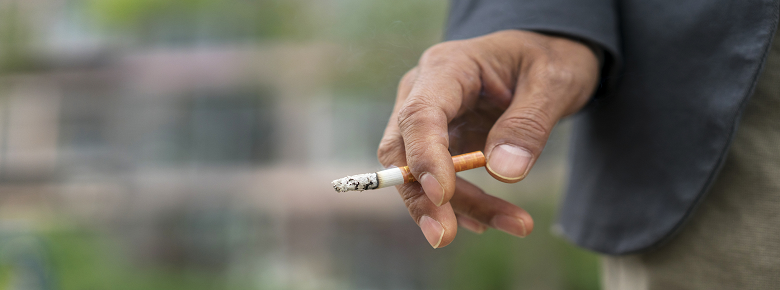
Stock image.
Gainesville, FL—Attorneys Tuesday debated what role, if any, R.J. Reynolds and its marketing played in the death of a Florida smoker, as trial opened against the tobacco giant. Dixon v. R.J. Reynolds, 2015-CA-002554.
Tyrone Dixon, 39, died in 1994, a little more than a year after doctors diagnosed him with laryngeal cancer that his family maintains spread to his brain, and more than 25 years after he started smoking. Dixon’s family contends Reynolds took part in a tobacco industry conspiracy to hide the dangers of smoking that hooked him to cigarettes and ultimately killed him.
During Tuesday’s opening statements, Avera & Smith’s Mark Avera, representing Dixon’s family, walked jurors through evidence he said showed a tobacco industry campaign to spread doubt and confusion about the dangers of smoking throughout the latter half of the 20th century
Meanwhile, Avera said, Reynolds targeted teenagers and African American smokers like Dixon with aggressive marketing. “Never, ever during Mr. Dixon’s lifetime did they tell him or Americans what they actually knew about smoking and cancer and what they believed,” Avera said, noting Dixon largely smoked Kools and Newports, menthol brands marketed heavily to African Americans.
The case is one of thousands of the state’s so-called “Engle progeny” lawsuits against the nation’s tobacco companies. They stem from a 2006 Florida Supreme Court decision decertifying Engle v. Liggett Group Inc., a class-action tobacco suit originally filed in 1994. Although the state’s supreme court ruled that Engle progeny cases must be tried individually, it found plaintiffs could rely on certain jury findings in the original case, including the determination that tobacco companies had placed a dangerous, addictive product on the market and hid the dangers of smoking through much of the 20th century.
In order to be entitled to those findings, however, each Engle progeny plaintiff must prove the smoker at the heart of their case suffered from nicotine addiction that legally caused a smoking-related disease.
Reynolds argues Dixon was not a hopeless addict, but knew the dangers of cigarettes and chose to continue smoking for decades. During Tuesday’s openings, King & Spalding’s Philip Green told jurors Dixon never took concerted efforts many smokers take to quit, such as throwing away his cigarettes or asking for a doctor’s help, and that his family acknowledges he did not do enough to stop smoking.
Further, Reynolds attorneys defended the company's targeted marketing to different demographics, including African Americans, as similar to what many companies do across industries. “If you want to market to certain consumers, then you sponsor NASCAR events. Chances are those aren’t the same kinds of consumers that are going to attend the Kool Jazz Festival, let’s just face it,” King & Spalding’s Ray Persons told jurors Tuesday. “That’s called targeted marketing, and there’s nothing pernicious or sinister about that.”
Trial is expected to last into next week.
Email Arlin Crisco at acrisco@cvn.com.
Related Information
Plaintiffs are represented by Avera & Smith’s Mark Avera and Rod Smith.
R.J. Reynolds is represented by King & Spalding’s Ray Persons and Philip Green.
Not a subscriber?
Learn about CVN's unrivaled library of gavel-to-gavel trial video live and on demand.





